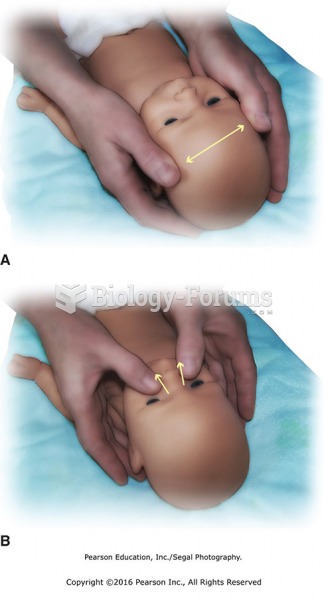|
|
|
Did you know?
The B-complex vitamins and vitamin C are not stored in the body and must be replaced each day.
Did you know?
There are approximately 3 million unintended pregnancies in the United States each year.
Did you know?
There are more bacteria in your mouth than there are people in the world.
Did you know?
Thyroid conditions may make getting pregnant impossible.
Did you know?
Critical care patients are twice as likely to receive the wrong medication. Of these errors, 20% are life-threatening, and 42% require additional life-sustaining treatments.







